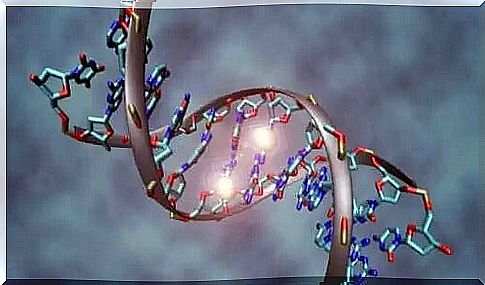Genetic Basis Of Cancer – What Do You Know About Them?

It is important to know the genetic basis of cancer, although the disease also depends on many other factors, including environmental, health, and lifestyle factors.
Scientific advances in understanding the genetic basis of cancer could lead to the development of new treatments and methods for early detection. This will make it easier to tailor your treatment to your disease.
The evolution of genetic methods and research has given experts key information that allows them to find out what genes are associated with the risk of developing a particular type of cancer. The most important discovery was the discovery of the BRCA1 / BRCA2 gene associated with hereditary breast cancer.
How does cancer develop?
The set of cancer-related diseases share a common origin in which various changes in cell repair mechanisms play a role. The presence and accumulation of many different genetic changes can promote the development of cancer cells.
These malignant cells affect the control of the cell cycle, facilitating the onset of cancer. Genetic information is obtained by analyzing biological DNA samples. However, a change in the DNA sequence of a particular gene does not necessarily mean that you will develop cancer.

You can do a genetic test at any time in your life and then compare the results with those of your relatives. It also allows you to assess your risk of developing a specific type of cancer.
What are the characteristics of hereditary cancer?
Experts are now making progress in screening programs for colorectal and breast cancer. However, having these screening programs is not enough. This is because it is also necessary to make people aware of preventive measures.
In order to properly assess the characteristics of hereditary cancer, experts take into account certain variables that relate to the patient himself or his family members. If some of these variables appear in a person who has been tested, your doctor may believe that the cancer you suffer from is genetic.
Patient-related variables
- The presence of several major tumors in the same or different organs.
- Primary bilateral tumors.
- Diagnosis younger than usual.
- Tumors associated with birth defects or hereditary precursor lesions.
Variables related to the patient’s family
- Two or more first degree relatives with rare tumors.
- First degree relative and with the same or related neoplasm.
- Two or more first-degree relatives with tumors in the same area.
- Three or more relatives in two generations with tumors in the same area.
- Two or more first degree relatives with tumors associated with known familial cancer syndrome.
What is genetic counseling?
The goal of genetic counseling is to provide both patients and their relatives with relevant information about the results of genetic tests.
The process consists of the following phases:
- first, examining the medical history of both the patient and his relatives ,
- collection and analysis of genetic information,
- reporting the results to the patient,
- health education,
- support in making decisions,
- taking into account the observation of the doctor.
Performing a genetic test gives the opportunity to take specific actions to improve health and prevent disease. Another great advantage of genetic testing is that it allows cancer to be diagnosed at the earliest stage, thus increasing the chances of a cure.
Genetic basis of cancer – analysis
Genetic analyzes of cancer began by examining families at high risk of developing the disease. Overall, there were many cases of cancer in these families. Therefore, experts began to study genes that could be associated with the disease.

In their analyzes, doctors often consider factors such as the total number of family members who provided the DNA sample, the age at onset, or the number of cases in the family. Another type of genetic analysis that experts can perform is the Genome Whole Association Study (GWAS).
The genetic basis of cancer: a conclusion
People who have inherited a specific variant in their DNA have a genetic predisposition to develop a specific type of cancer. Today, it is possible to detect these variants before cancer develops.
In short, the scientific responsibility for being able to identify cancer risk requires human involvement as well as accompanying those who choose genetic counseling in the process.









